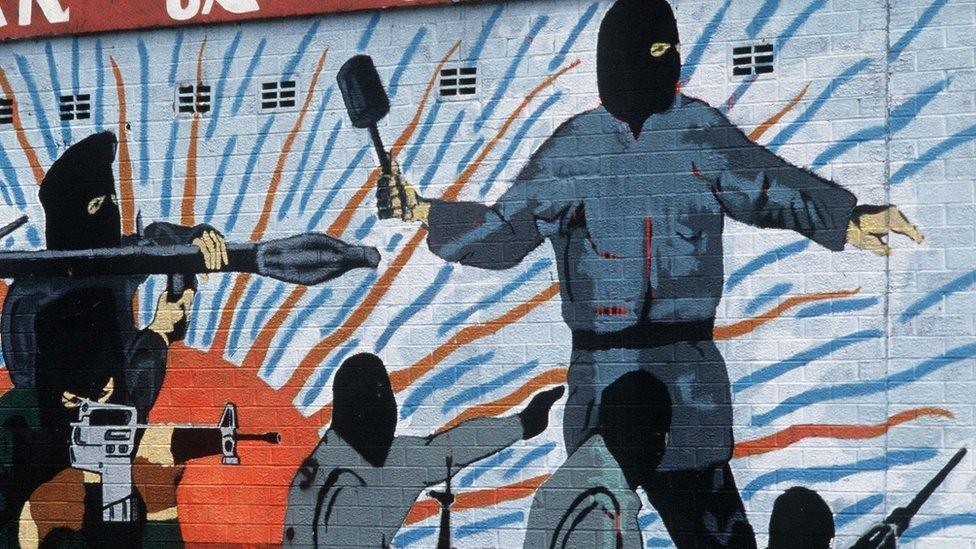Loyalist group withdraws support for Good Friday Agreement
- Published
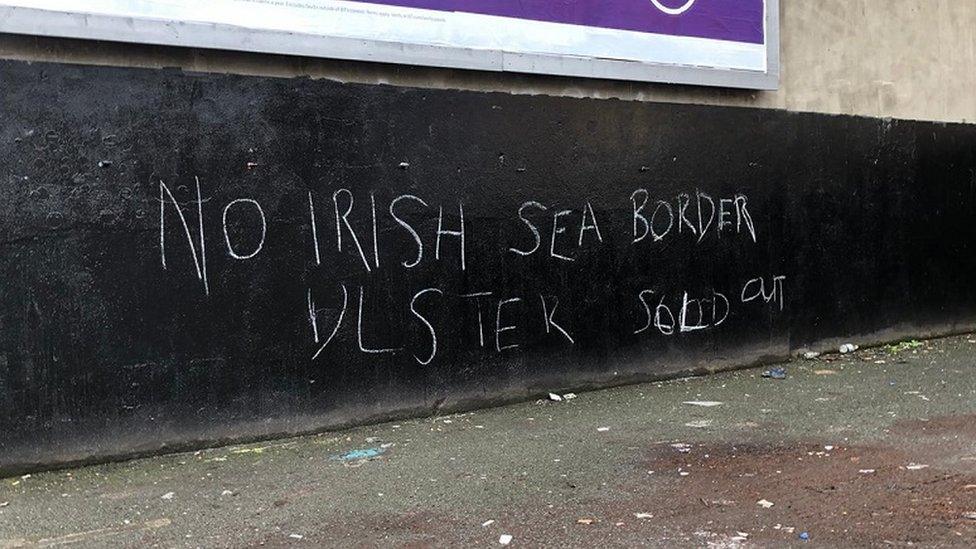
Anti-Irish Sea border graffiti has appeared in parts of Northern Ireland
A group which includes representatives of loyalist paramilitaries has written to the prime minister to withdraw its support for the Good Friday Agreement.
The Loyalist Communities Council (LCC) said it was temporarily withdrawing its backing because of concerns about the Northern Ireland Protocol.
The protocol means NI remains in the EU single market for goods, so products from GB undergo EU import procedures.
Unionists say it damages trade and threatens NI's place in the UK.
In the letter, first reported by the Irish News, external, LCC chairman David Campbell said the group's leadership is "determined that unionist opposition to the protocol should be peaceful and democratic".
He added that the prime minister should not "underestimate the strength of feeling on this issue right across the unionist family".
Mr Campbell said the LCC's support for the Good Friday Agreement would be withdrawn "until our rights under the Agreement are restored and the protocol amended to ensure unfettered access for goods, services and citizens throughout the United Kingdom".
He told the BBC's Newsnight programme that Boris Johnson has "reneged on the clear promises he made to the people of NI that there would be unfettered access".
"So we are asking him and holding him to account and through this letter showing him that it is not just rhetoric from our parliamentary spokespersons that he has to be mindful of, but the strong grassroots anger that is palpable throughout the ground in Northern Ireland," he added.
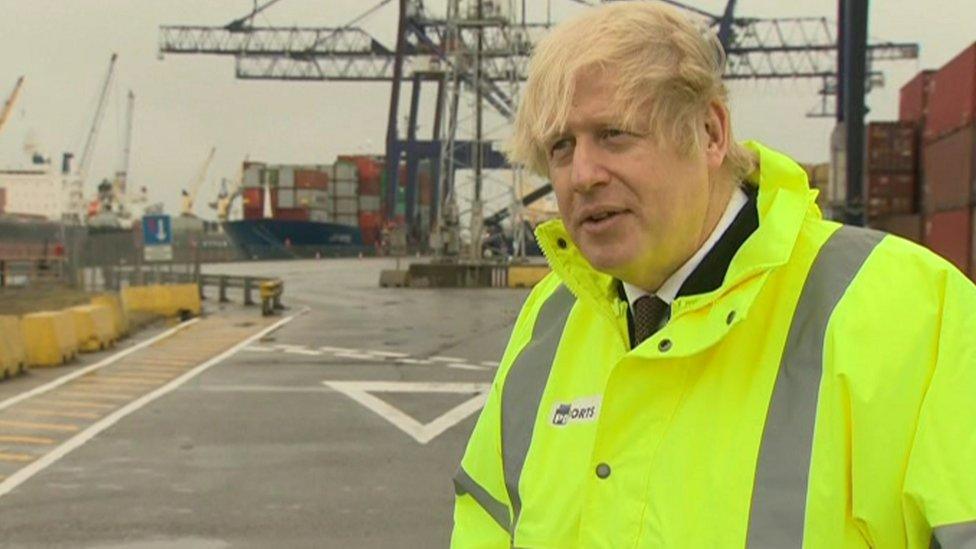
The prime minister's official spokesperson said he was "fully committed to the Belfast/Good Friday Agreement"
Mr Johnson said: "I haven't seen, I don't know which groups you're talking about but what I can say is we're taking some temporary technical measures to insure that there are no barriers in the Irish Sea or to make sure that things flow freely from GB to NI and that's what you'd expect.
"But obviously these are matters for continuing intensive discussions with our friends."
Earlier, responding to the letter, the prime minister's official spokesperson said he was "fully committed to the Belfast/Good Friday Agreement".
The official said the government was "determined" to avoid a hard border on the island of Ireland, and it was "simply looking to make some changes that have arisen as part of the protocol".
The LCC represents groups including the Ulster Volunteer Force (UVF) and Ulster Defence Association (UDA) - loyalist paramilitary groups responsible for the murders of hundreds of people.
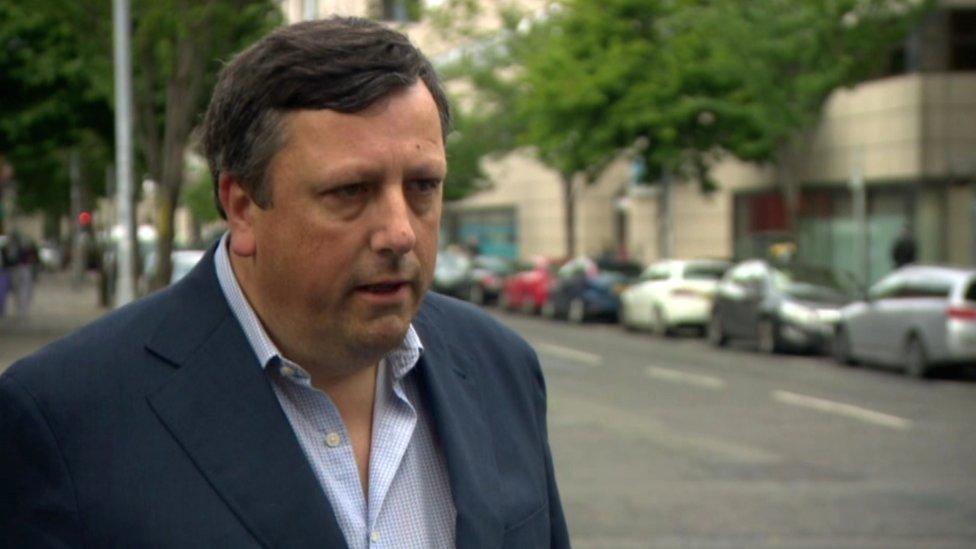
David Campbell is the chairman of the Loyalist Communities Council
The Good Friday Agreement, also known as the Belfast Agreement, was signed in 1998 and marked the effective end of the Troubles in Northern Ireland.
It established a devolved power-sharing administration, and created new institutions for cross-border cooperation and structures for improved relations between the British and Irish governments.
It was approved by referendums in Northern Ireland and the Republic of Ireland in 1998 and was subsequently incorporated into British and Irish constitutional law and other areas of legislation.
The LCC letter states: "If you or the EU is not prepared to honour the entirety of the agreement then you will be responsible for the permanent destruction of the agreement."
The letter was published shortly after the EU said on Wednesday that a UK move to unilaterally extend grace periods for Irish Sea border checks as part of the NI Protocol would be a breach of international law.
'A political move'
Chief Constable Simon Byrne said the PSNI is currently assessing the letter, but he does not foresee any immediate threat of loyalist disorder or violence.
He was speaking at a meeting of the Northern Ireland Policing Board in Belfast.
The chief constable described it as "a political move".
"It is best dealt with by politicians… but as we sit here we do not see any immediate change in emotion or potential for disorder or violence coming from within the loyalist community," he added.
Representatives of the LCC recently held talks with officials from the Northern Ireland Office to warn them of growing tensions around the Brexit protocol, but Mr Byrne said the PSNI had not met the LCC nor would they.


One person I spoke to last night described the move as a form of passive resistance by loyalist paramilitaries to the protocol.
I do not see it as a being a step closer to any street protest or violent actions. Indeed the letter states opposition to border arrangements should be peaceful and democratic.
What it captures though is continuing discontent and anger within a section of the community.
But in terms of consequences I am not sure withdrawing support for the Good Friday Agreement amounts to much in practical terms. The DUP didn't back the agreement either.
Obviously loyalist prisoners were released on the basis of the agreement.
It was, though, not conditional on support for the agreement, but rather an individual not engaging in future violence.

In February Northern Ireland's major unionist parties said they were supporting a legal bid to challenge the Protocol.
The Democratic Unionist Party (DUP), Ulster Unionist Party (UUP) and Traditional Unionist Voice (TUV) have said they are supporting judicial review proceedings.
In response to the letter, Alliance Party deputy leader Stephen Farry said Boris Johnson faced a decision over whether he would "give more oxygen to the normalisation of treating illegal organisations like any other stakeholder in society".
The Good Friday Agreement: A brief guide
DUP MP Sir Jeffrey Donaldson told the BBC's Good Morning Ulster programme that unionist confidence and support for the Good Friday Agreement "is diminishing rapidly".
He said: "People have lost confidence because they believe that no one is listening to the concerns of unionists.
"I am not in any way, nor is my party, advocating that there should be the threat of violence or anything like it for any reason, there can be no justification for anyone doing that.
"The LCC statement makes clear that their opposition to the Northern Ireland Protocol will be peaceful and democratic."
The LCC was set up in 2015 by Mr Campbell, a former chairman of the Ulster Unionist Party, and Jonathan Powell, chief of staff to former Prime Minister Tony Blair, as a means to help bring an end to loyalist paramilitarism.
It is not a proscribed organisation and is said to represent a range of individuals and views from the wider Protestant, unionist and loyalist communities.
In late February the DUP leadership held talks with the organisation to discuss opposition to the protocol.
It came shortly after Mr Campbell was criticised after saying loyalists would "fight physically" to maintain "freedoms" within the UK.
In January, the LCC also met top civil servants from the Northern Ireland Office (NIO) to express anger at the Irish Sea border arrangements.
It is not the first time loyalist groups have withdrawn their support for the Good Friday Agreement.
In 2001 the Ulster Freedom Fighters (UFF) - a cover name often used by the UDA when it claimed responsibility for sectarian murders - withdrew its support for the deal.
In October 2015 the UDA "recommitted" to the principles of the Agreement, along with the UVF and the Red Hand Commando.
- Published26 February 2021
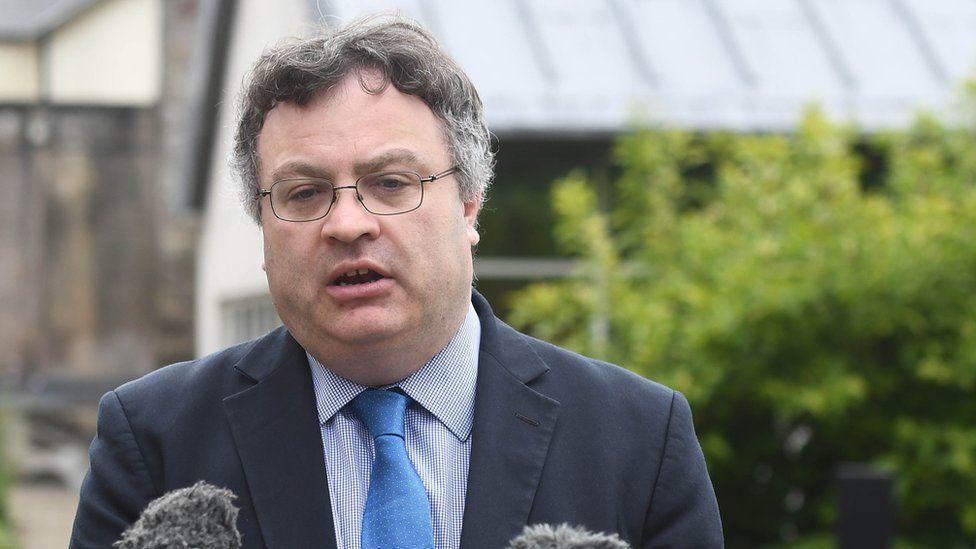
- Published21 February 2021
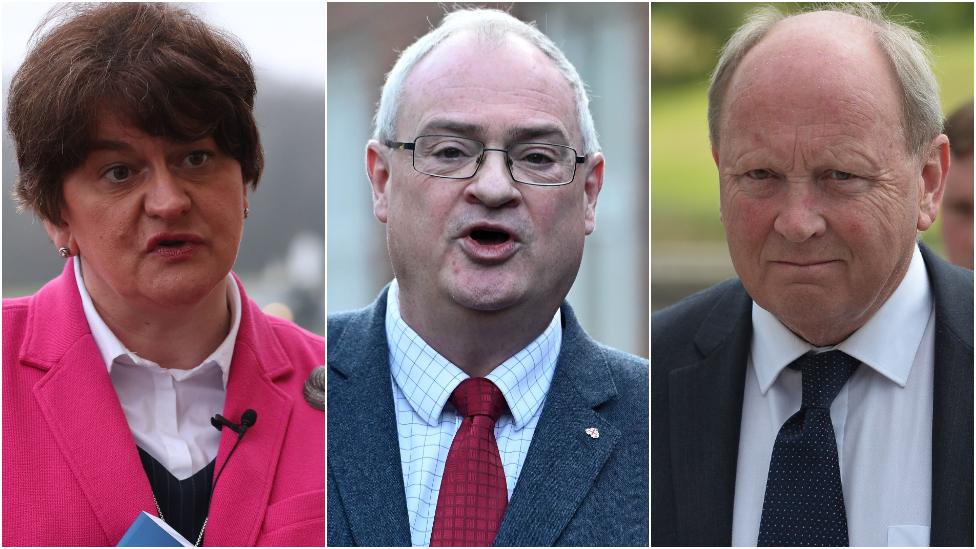
- Published2 December 2020
